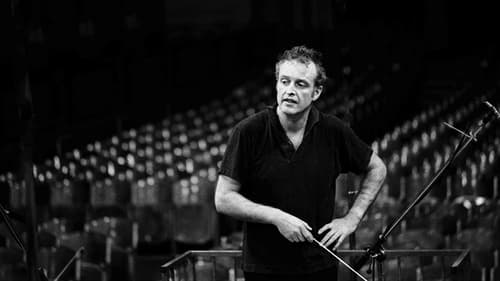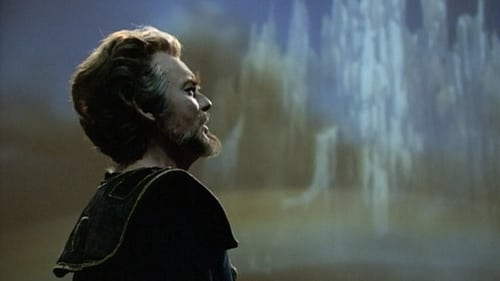Brigitte Fassbaender
出生 : 1939-07-03, Berlin, Germany

Herself

Self

Self

Self
“What remains of Karajan?” asks the award-winning documentary film maker Eric Schulz. In his film Karajan – The Second Life, he explores the man and the musician – and especially his media legacy. We discover the conditions under which the technology enthusiast Karajan created his countless recordings and how these documents can help us to understand the phenomenon that is Karajan.

A documentary about the life and career of the conductor Carlos Kleiber. Featuring interviews with Placido Domingo, Brigitte Fassbaender, Manfred Honeck, Michael Gielen, and others. On the 11th July 2004 Carlos Kleiber got into his car and drove from Munich, via the Alps, to his holiday home in the remote Slovenian village of Konjsica. There he wrote a final letter to a friend in which he bid farewell to the world. A short time later the conductor, increasingly plagued by illness and suffering, was found dead.

Klytämnestra
The Otto Schenk production of Richard Strauss's "Elektra", filmed live at the Metropolitan Opera in January, 1994. Hildegard Behrens stars as Elektra, with Deborah Voigt as Chrysothemis, Brigitte Fassbaender as Klytämnestra, Donald McIntyre as Orest, and James King as Aegisth. James Levine conducts.

Klytemnästra
Recorded at the Vienna State Opera house in 1989, this staging of Richard Strauss and Hugo von Hofmannsthal’s Elektra is one of the glories of live opera on film, deserving of eternal availability. The DVD picture has great clarity, despite the darkness of Hans Schavernoch’s set design. Other than the cliché of a huge statue head, toppled on its side, the set manages to be suitably representative of a decaying palace as well as an imposing, theatrical space, dominated by the mammoth body of the statue from which the head apparently dropped, draped with the ropes that seem to have enabled the decapitation. Sooner or later most of the characters cling to and twist around those ropes, an apt stage metaphor for the remorseless repercussions from the murder of Agammenon by his unfaithful wife Klytämnestra and her paramour, Aegisthus. Reinhard Heinrich’s costumes capture a distant era while sustaining a creepily modern look — part Goth, part homeless, part Spa-wear.

Prinz Orlovsky
オットー・シェンクが演出したJ. シュトラウスの喜歌劇「こうもり」を収録した映像作品。

Charlotte
Jules Massanet's lyrical opera is transformed into a superb film production by Petr Weigl, shot on location in Prague, with music conducted by Libor Pesek. First produced by the Vienna Opera in February 1892, "Werther" rapidly confirmed Massanet's position on the French opera scene and achieved enormous popularity outside France, notably in Italy, America and England. The tragic story tells of Werther's intense passion for Charlotte, who has married his best friend, Albert, fulfilling a pledge to her now deceased mother. But Werther's letters of love bring Charlotte to his side when he promises to take his own life.

alt

Hänsel
誰もが知っているグリム童話の「ヘンゼルとグレーテル」の物語をベースにしたフンパーディンク作曲の≪ヘンゼルとグレーテル≫は、判り易い内容と珠玉のメロディに満ちた親しみ易い「メルヘン・オペラ」の代表作。ファスベンダー、グルベローヴァ、プライといった魅力溢れる超一流のキャスト、ショルティの的確なタクトによる最高の音楽と幻想的な映像は、子供から大人まで全ての世代を魅了します。

Theodor Guschlbauer conducts the Chorus and Orchestra of the Vienna State Opera in this lavish staging of Johann Strauss's operetta. Recorded in 1980, the production features some of the leading performers of their day, including Lucia Popp, Edita Gruberova, Bernd Weikl, Walter Berry and Brigitte Fassbaender.

Octavian, genannt Quinguin, ein junger Her aus großem Haus
1979年に行われたカルロス・クライバー指揮によるR・シュトラウスの楽劇「ばらの騎士」の模様を映像化。グィネス・ジョーンズの元帥夫人ら錚々たる顔ぶれが共演。

Fricka
This 1978 studio production of the prologue to Wagner's masterpiece is the only segment of the famous Salzburg Festival/Metropolitan Opera productions, first seen in the 1960s, that made it to film. Based on one of those original productions, Georges Wakhevitch produced stage settings and transformations that supported Karajan's concept with every possible means. Herbert Von Karajan's staging is in the epic style of another age, emphasizing the dignity of the gods rather than their all too human failings. With the singers - foremost among them Peter Schreier - Karajan had an ensemble that fully conformed to his intentions.








